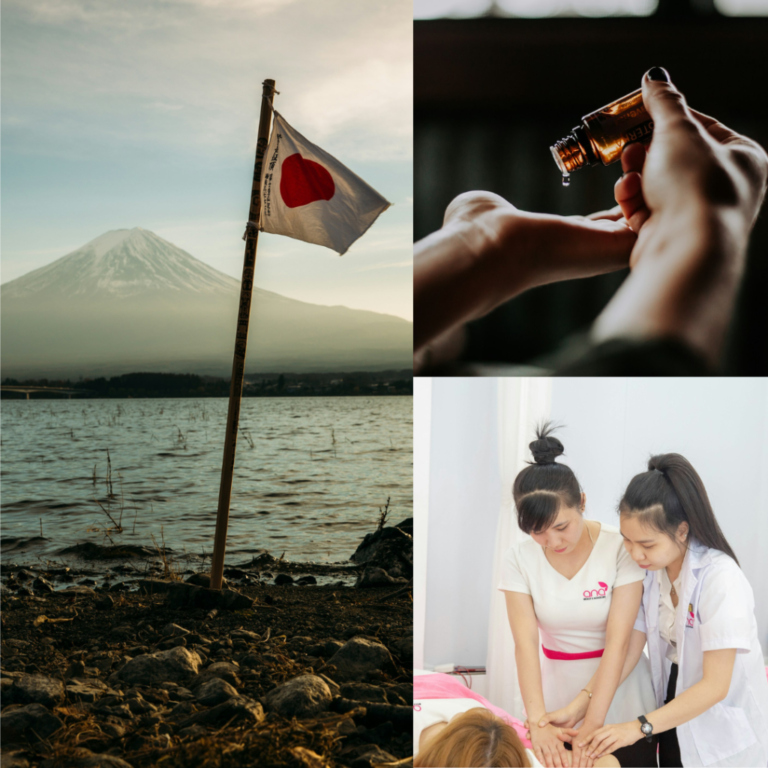Best expat health insurance for Japan
Choosing the best health insurance in Japan for foreigners isn’t easy — we’ll help by reviewing some top options!
According to World Health Organization (WHO) data, Japanese people are the longest-lived on the planet. Diet, lifestyle and climate all help. However, without their high-quality healthcare system, Japan probably wouldn’t lead this ranking. Of course, this health excellence comes at a cost (quite a high one). Therefore, if you plan to work as a digital nomad, study, or live in Japan for some time, you’ll need a health expat insurance for Japan. Feeling panicked? Don’t worry, we’ll explain everything you must know.
First of all, you need to know that health insurance in Japan (Kokumin-kenkô-hoken) is mandatory. The authorities require all residents to join their health programme. As you read, you’ll understand its importance. Just one medical consultation can cost around $30 (€28), which shows why getting good insurance is among the first things you should do after arrival.
Now, let’s check which are the best health insurance options for foreigners in Japan (including costs, plans, pros, cons). Reading this article will help you a lot. Still, before travelling to the country, we advise you to consult the Japanese embassy/consulate in your country about the procedures required to obtain insurance. So, let’s get started!
Who needs health insurance in Japan?
In Japan, health insurance is mandatory for all foreign residents, whether students, workers, or people staying longer than three months. The Japanese healthcare system is highly structured and guarantees that all residents, including foreigners, can access medical services.
Students usually benefit from the National Health Insurance, which offers coverage at a relatively low cost depending on income. Foreign employees, instead, normally join their employer’s insurance, with the premium shared between employer and employee.
Travellers staying less than three months are excluded. In that case, they must purchase travel insurance. By the way, planning to discover this Asian treasure? Don’t miss our travel guide!

Types of health insurance in Japan
There are two main health insurance systems in Japan. Both cover a wide range of medical services, from consultations and hospitalisation to emergencies. Additionally, Japanese insurance provides extra coverage for chronic conditions and emergencies, like traffic accidents or natural disasters.
National Health Insurance (NHI)
This insurance targets students, self-employed workers, and any resident not enrolled in employer insurance. NHI covers 70% of medical costs, while the remaining 30% is the patient’s responsibility. However, some treatments aren’t included, so patients pay 100% of those costs. Besides NHI, foreigners in Japan may also consider international health insurance for broader coverage.
Over 90% of Japanese hospitals and clinics accept National Health Insurance, ensuring medical attention. It also provides benefits for high costs from surgery, hospitalisation, childbirth, and sometimes covers expenses abroad.
If you move to Japan for some time, don’t forget: If you don’t register for NHI right after arriving, you’ll pay retroactive fees. For example, if you arrive in March but register in May, you’ll need to pay March, April, and the regular first monthly fee.
Social Health Insurance (SHI)/Employee’s Health Insurance
This system is mandatory for full-time employees in Japanese companies. In this case, the employer and employee share the premium (each covers 50%). It provides full coverage, including medical consultations, hospitalisation, dental care, and often coverage for dependents.
How to access healthcare in Japan?
In Japan, once registered, you receive an insurance card to present when accessing medical services. With it, you pay only the uncovered percentage (usually 30%), and insurance pays the rest. Remember to always carry your card, or you’ll pay the full amount of your treatment.
For expatriates and temporary residents, the system guarantees access to quality healthcare. There are also international health insurance services that complement national insurance, offering extra coverage for specific cases or higher expenses.
Important: If you are a frequent traveler and want to stay connected without worrying about expensive roaming or looking for a new SIM at every destination, Holafly’s subscription plans are for you. With a single eSIM, enjoy internet in more than 160 countries for a fixed price and no surprises on your bill. Travel without limits and connect easily and securely! 🚀🌍

Costs of healthcare services in Japan
The Japanese healthcare system is one of the most advanced and accessible worldwide, offering high-quality services across the country. However, medical costs can be significant if you don’t have insurance. Fortunately, most residents are covered under the national system, which pays between 70% and 90% of expenses, leaving only the copayment.
Below, you’ll find the estimated prices of some common medical services in Japan:
| Medical service | Approximate cost (without insurance) |
| General medical consultation | $32-65 (€30-61) |
| Consultation with a specialist | $65-97 (€61-91) |
| Hospitalisation per day | $65-130 (€61-122) |
| Medical emergencies | $32-97 (€30-91) |
| Blood test | $19-32 (€18-30) |
| X-ray | $32-52 (€30-49) |
| Magnetic Resonance Imaging (MRI) | $97-162 (€91-152) |
| Minor surgery (for example, stitches) | $130-325 (€122-305) |
| Dental care (consultation and basic cleaning) | $32-65 (€30-61) |
| Fracture treatment | $195-325 (€183-305) |
| General medical check-up | $65-130 (€61-122) |
Prices may vary depending on the region and type of hospital or clinic (public or private). Moreover, patients enrolled in National Health Insurance (NHI) or Employee’s Health Insurance (EHI) will see a significant reduction in these costs.

The 5 best health insurances in Japan for foreigners
If you plan to live in Japan, whether for work, study, or another reason, good health insurance is essential. Health insurance for foreigners varies depending on coverage, length of stay, and individual needs. So, here are the five best health insurances for foreigners in Japan. We analyse their benefits, coverage types, as well as disadvantages or downsides.
Allianz Care
Allianz Care is part of the Allianz group, one of the world’s most respected insurers, with strong presence in international health insurance. The company specialises in policies for expatriates, frequent travellers, international students, and businesses with employees abroad. It stands out for comprehensive coverage, from primary care to specialist treatments, ensuring high-quality medical services in multiple countries, including Japan.
| Plans and prices | Essential Plan: Basic cover with hospitalisation and emergencies. Good for those wanting emergency-only coverage. Its cost is around $500-1,200 (€446-1,07) per year. Classic Plan: More advanced, covering hospitalisation, outpatient consultations, and specialists. A good option for those wanting more medical access without full coverage. In this case, insurance costs range from $1,200-2,500 (€1,071-2,232) per year. Premier Plan: This plan includes hospitalisation, outpatient care, mental health, physiotherapy and cover for dental and optical treatments. It’s the most complete option, offering comprehensive cover for people seeking total protection abroad. Cost: $2,500 – 3,500 (€2,356 – 3,297) per year. |
| Pros | Extensive provider network worldwide. Access to top hospitals in Japan. Customer support in multiple languages. Customisable plans with dental or optical cover. Mobile app for claims and digital queries. |
| Cons | Higher prices compared with other insurers, Allianz Care can cost more, especially for those needing full coverage. Some treatments, such as alternative therapies, may have limits or exclusions. |
| Recommended for | Expatriates, international students, and travellers staying longer than three months. |
Cigna Global Health
If you’re a digital nomad or remote worker, Cigna Global Health is one of your best options in Japan. This globally recognised company offers a wide range of plans for different needs and budgets. Coverage is based on a flexible module system that allows adding benefits like dental, mental health, and maternity cover.
| Plans and prices | Silver Plan: Basic plan with emergency treatment and hospitalisation. It also includes emergency treatment and hospitalisation. The estimated price is around $2,000-4,000 (€1,786-3,571) per year. Golden Plan: More complete, covering hospitalisation, outpatient consultations, specialists, and extras. The service cost ranges from $4,000-6,000 (€3,571-5,357) per year. Platinum Plan: Full cover including hospitalisation, outpatient, mental health, dental, optical, and maternity. Cost: $6,000 – 10,000 (€5,652 – 9,420) per year. Includes optional modules for alternative therapies. |
| Pros | Flexible cover with optional modules. 24/7 assistance. Platinum plan includes dental and optical care, uncommon in many insurers. |
| Cons | Plans can be costly, especially Platinum. Dental and optical benefits only in higher tiers or as add-ons. Some restrictions for pre-existing conditions or age. |
| Recommended for | Digital nomads, remote workers, and expatriates. |
Sompo Japan Nipponkoa
Sompo Japan Nipponkoa is one of Japan’s leading insurers, part of Sompo Holdings. With long history, it offers health, vehicle, life, and home insurance for both locals and foreigners. Its health products provide security and adapt to personal needs, with different plan levels.
| Plans and prices | Basic Health Insurance: Covers hospitalisation and emergency consultations. It’s ideal for people seeking essential cover. The cost varies between $100-200 (€89-178) per month. Comprehensive Health Insurance: Perfect for those wanting broader and more complete cover. It includes hospitalisation, outpatient consultations, medication and access to specialists. The cost ranges from $200-400 (€178-357) per month. Premium Plan: Full cover including chronic conditions, specialist consultations, alternative therapies, and wide hospital network. Price: $400 – 600 (€376 – 564) per month. |
| Pros | The company has agreements with many hospitals and clinics, making access to quality healthcare easier nationwide. They offer multilingual support, especially helpful for foreigners who don’t yet master the Japanese language. It lets you adjust certain coverage aspects, which is ideal for people with specific health needs. |
| Cons | More expensive than some international insurers. Limited international coverage, which can disadvantage expatriates or frequent travellers. Restrictions also apply to pre-existing conditions. |
| Recommended for | Expatriates and foreigners living in Japan. |
Tokio Marine Nichido
Tokio Marine Nichido is another long-standing Japanese insurer, part of Tokio Marine Holdings. It offers a wide range of insurance products, including health, and is known for reliability. Its medical insurance plans are attractive for expatriates, with broad cover options and adjustable benefits.
| Plans and prices | Basic Health Plan: Emergency care, basic hospitalisation, urgent consultations. Cost: $100 – 150 (€94 – 141) per month. Comprehensive Health Plan: Full hospitalisation, general and specialist consultations, medication, and diagnostics. Price: $200-350 (€178-312) per month. Premium Plan: Complete cover including chronic conditions, specialists, alternative therapies, and wide provider network. Cost: $400 – 600 (€376 – 564) per month. |
| Pros | The insurer has a strong network of medical providers in Japan, making high-quality healthcare accessible across the country. Multilingual customer service, including English. Optional add-ons. Some plans offer emergency cover abroad. |
| Cons | Expensive plans. Limited pre-existing condition cover. Some reimbursement processes may be bureaucratic. |
| Recommended for | Expatriates and foreigners living in Japan. |
Aetna International
Aetna International is a globally recognised insurer with strong presence in expatriate health insurance. Its plans allow access to medical services in multiple countries, making it ideal for those living in Japan but wanting global cover. Aetna offers variety and flexibility, making it suitable for frequent travellers or those with specific medical needs.
| Plans and prices | Pioneer 1750: Covers general consultations, hospitalisation, chronic conditions, emergencies, and mental health. From $200 (€178) per month for basic cover, which increases as extra benefits are added. Pioneer 2500: Offers broader coverage than the previous plan. Its cost is $300 (€268) per month, though it varies by age and country of residence. Cumbre 5000: A premium plan covering general consultations, hospitalisation, maternity, chronic illness, mental health and preventive services. Cost: $350 – 500 (€329 – 470) per month. |
| Pros | Global coverage with easy access in many countries. Variety of plans. Options for dental and mental health in some plans. |
| Cons | Costs can be higher compared to other insurers. Some preventive services may be limited in basic plans. |
| Recommended for | Expatriates planning to live in Japan. |
Which is the best health insurance in Japan?
Choosing the best health insurance in Japan isn’t simple, since all options are solid. They offer plans suitable for digital nomads, remote workers, international students, and travellers staying more than three months. In any case, the best health insurance for foreigners in Japan depends on the insured’s specific needs.
If we had to choose one, it would be Allianz Care. This insurer stands out as an excellent choice thanks to its comprehensive cover, flexible plan options, and global medical service network. It allows you to customise coverage based on your budget and needs, from basic plans to premium policies including dental, maternity, and mental health. Another advantage: Global cover, ideal for frequent travellers or people planning to live abroad later.
Although Allianz Care offers full cover, its plans may be more expensive than other options, such as Sompo Japan or Aetna International. These also provide good coverage in Japan at slightly lower prices, though with limitations in specialised services.

Health insurance in Japan: Frequently asked questions
First of all, it’s a bad idea. You won’t have health cover, and you’ll pay all expenses in case of accident, illness, or any health issue. Even something simple like a cold can cost around $23 (€22). Imagine the cost of an appendix surgery?
Under Japan’s national health insurance, pre-existing conditions are usually covered without problem. However, private insurers may have limitations, waiting periods, or exclusions for pre-existing conditions. Always check the specific policy before signing.
The Japanese National Health Insurance doesn’t cover expenses outside Japan. However, some private international insurers, such as Allianz Care and Cigna Global Health, offer plans with international cover, ideal for frequent travellers.
No, Japan’s National Health Insurance (NHI) isn’t available for tourists. In any case, the best health insurance for foreigners in Japan depends on the insured’s specific needs. If we had to choose one, it would be Allianz Care. Even something simple like a cold can cost around $23 (€22). Imagine the cost of an appendix surgery?





 Language
Language 


















 No results found
No results found


